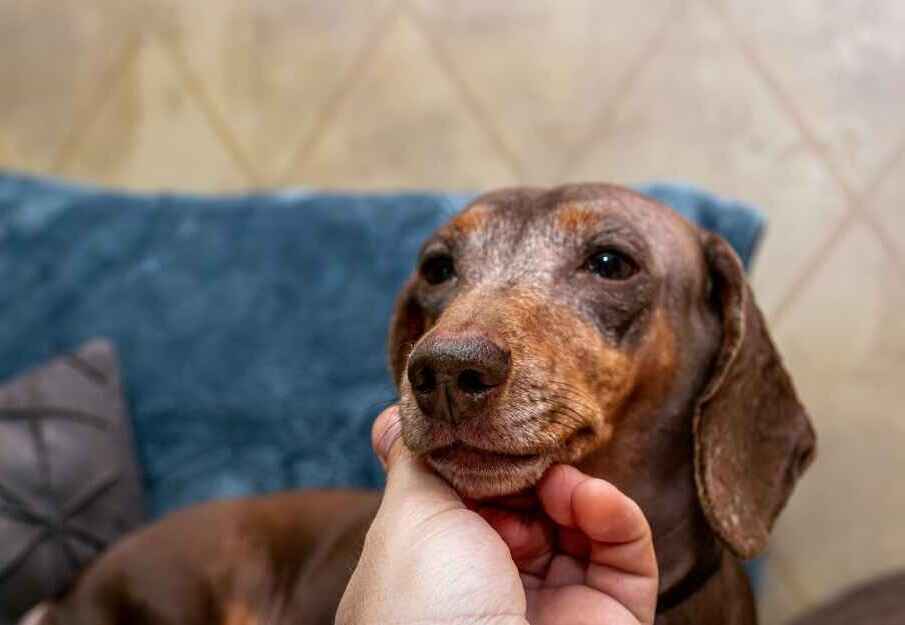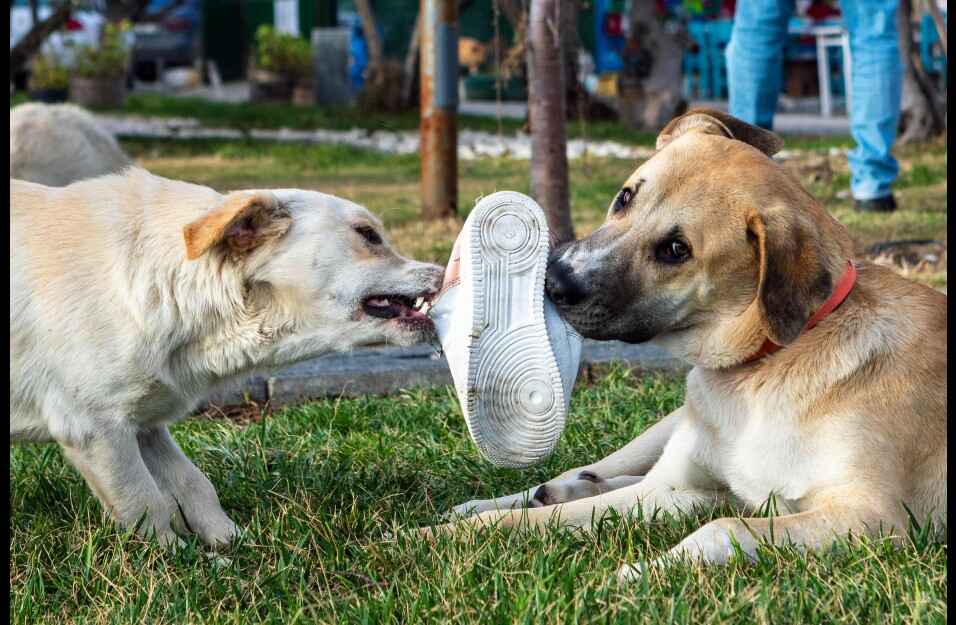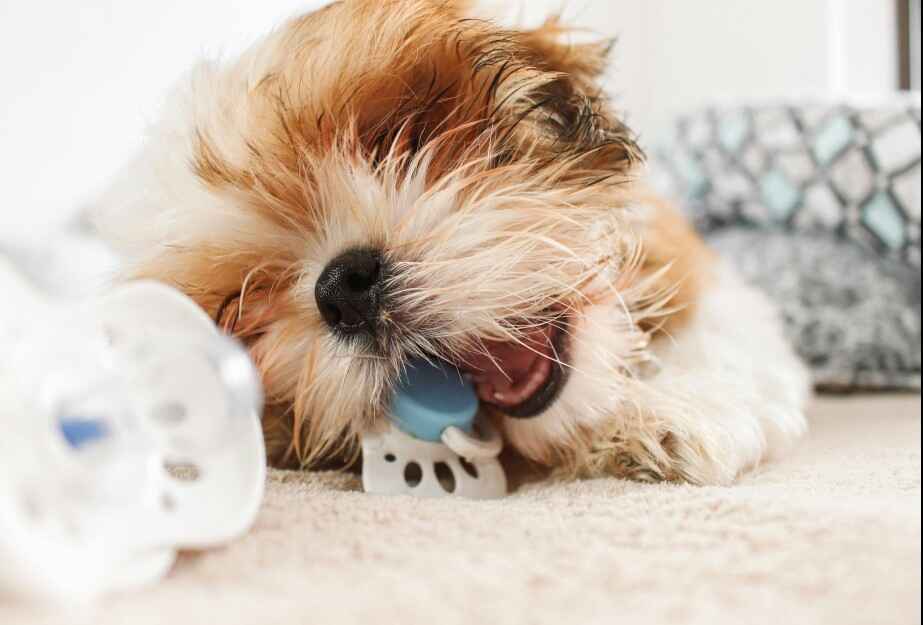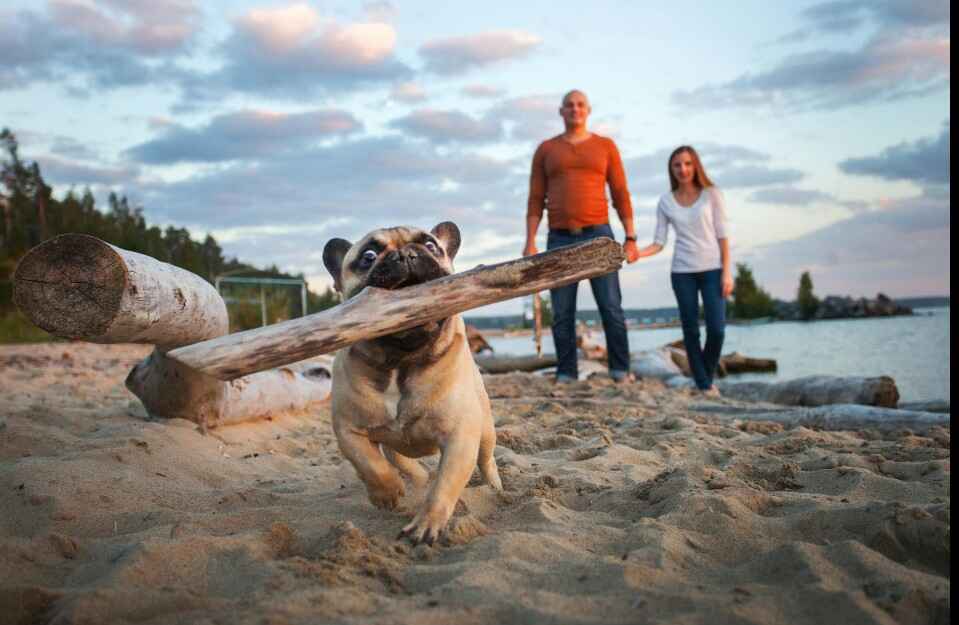How to Stop a Dog from Biting or Chewing
Introduction
You’re enjoying a peaceful moment and suddenly crunch.Your dog has chewed through your favorite slippers again.Or maybe your hand has become a target for your puppy’s razor-sharp teeth.If you’re asking yourself how to stop a dog from biting or chewing,you’re not alone.
This behavior,while normal,can become destructive fast.How to stop puppies biting, how to stop your dog from biting people or even how to stop your dog from biting leash—all stem from a common goal: to create a safe,peaceful environment for both of you. Addressing these issues early helps prevent long-term behavioral problems,injuries and stress—for your dog and for you.
Understanding Why Dogs Bite or Chew
Dogs don’t just bite out of nowhere.It might seem random,but there’s often a clear cause behind it.Teething,boredom or anxiety can push your pup into chewing things like his bed or even your clothes.Understanding how to stop a dog from chewing his bed starts with understanding why he’s doing it.

Some reasons dogs chew or bite:
- Teething pain (especially in puppies).
- Exploration—dogs explore the world with their mouths.
- Lack of stimulation—a bored dog is a destructive dog.
- Anxiety or stress triggers.
- Inconsistent rules—if sometimes chewing is allowed and sometimes not,confusion sets in.
Many owners also ask how to stop my puppy biting when play gets too rough.Puppies learn bite inhibition from their littermates.When separated early or not trained properly,they miss out on this social lesson.
When your dog is older, questions like how to stop your dog from biting your clothes or how to stop your dog from biting slippers are often signs that the habit stuck around.So identifying the root helps set the stage for correction.
Identifying the Cause of the Behavior
You must identify the cause of your dog’s behavior before you can alter it.If your dog is chewing or biting all the time,note the time and location.Does it happen during specific activities?Around some individuals?After being abandoned?
Here’s how to break it down:
- Watch closely: When your dog chews or bites,take note of what just happened.Did someone ring the doorbell?Were they left alone?Were they denied a toy?
- Check the items:If your dog chews furniture,ask yourself how to stop your dog from chewing on furniture,but also why furniture?It may be about texture,scent or location.
- Monitor body language: Dogs communicate with their bodies.Raised fur,tucked tails or tense muscles can be signs of anxiety leading to chewing or biting.
One common issue is paw chewing.If you’re wondering how to stop my dog from chewing his paws,it could be allergies,stress or even boredom.Sometimes a health check-up is needed to rule out medical problems.
Another odd but real concern is how to stop your dog from biting his tail—which could stem from flea bites anal gland issues or compulsive behavior.Always observe closely and document patterns.
Training Techniques to Prevent Biting or Chewing
Once you’ve nailed down why your dog bites or chews,it’s time to redirect the behavior.Let’s walk through the practical stuff that works.
Positive Reinforcement
This means rewarding your dog for doing the right thing.Give your dog praise or a treat if they choose a toy over your hand.Include brief,positive remarks like”Good lad!”throughout your speech..
Redirection
If your dog starts to bite or chew something off-limits:
- Say a sharp but calm “No”.
- Immediately hand them a toy.
- When they chew the toy, praise them.
This is especially helpful for issues like how to stop your dog from biting your clothes or how to stop puppy from biting hands.Every time you catch them mid-bite,offer a toy or chew bone.
A consistent daily care routine can reduce boredom-related chewing.

Consistency
Mixed signals are confusing.Everyone in the household must follow the same rules.If your dog gets away with biting your slippers once,don’t be surprised if it happens again.Solving how to stop your dog from biting slippers starts with unified discipline.
Don’t punish.Punishment only teaches fear—not obedience.Instead,use:
- Crate time (for calming down, not as punishment).
- Commands like“Leave it”or “Drop it.”
- Praise the moment good behavior appears.
Providing Appropriate Chew Toys
You can’t stop chewing if you don’t offer a solid alternative.Not all chew toys are equal. Some are too hard,too soft or simply boring.Finding the right one makes solving how to stop a dog from chewing his bed a lot easier.
Tips for choosing the right toy:
- For teething puppies:Try frozen carrots or teething rings.
- For aggressive chewers:Durable rubber toys like KONGs.
- For smart dogs:Puzzle toys that dispense treats.
- For comfort chewers:Plush toys with your scent.
Rotate toys every few days to keep your dog interested.Letting them chew something they should builds confidence and satisfaction.It also takes care of oral hygiene and teething discomfort.
Toys are key for avoiding issues like how to stop your dog from biting leash—a leash becomes less exciting if your dog has better options.
.
Creating a Dog-Friendly Environment
Solving issues like how to stop your dog from chewing on furniture or how to stop your dog from biting slippers isn’t just about training—it’s also about your environment.If temptation is everywhere,even a well-trained dog might slip up.
Here’s how to make your space bite-proof:
- Remove temptation:Keep shoes,slippers and clothes out of reach.
- Dog-proof furniture:Use chew-deterrent sprays like bitter apple on corners or wooden legs.
- Create safe zones:Use baby gates to block off certain rooms or use playpens.
- Routine cleanup:Dirty laundry smells like you—an irresistible target.Keep hampers sealed.
Having a structured space gives your dog clarity.For example,when dealing with how to stop your dog from biting your clothes,the less access they have to them,the better the result.Combine this with training, and chewing fades fast.
Environmental management also plays a role in tackling how to stop your dog from biting his tail.If stress is the cause,a peaceful home layout with less stimulation helps calm your pup and reduces compulsive behavior.
Addressing Behavioral Issues
If you’ve tried all the basics and still wonder how to stop your dog from biting people or how to stop your dog from biting you,your dog might be dealing with deeper behavioral problems.
Biting often ties to:
- Fear or insecurity
- Lack of socialization
- Past trauma
- Possessiveness over toys or food
What can help:
- Desensitization:Slowly expose your dog to triggers in a safe,controlled way.
- Routine: Dogs love predictability.Stick to feeding,walking and playing schedules.
- Professional help:A certified dog trainer or behaviorist can offer solutions that fit your dog’s history.
If your dog bites your hand during play,the issue may not be aggression.Still,it’s important to ask how to stop puppy from biting hands early on to prevent accidents later.Use time-outs,yelping like a puppy or freezing your hand to show biting ends the fun.
If paw chewing is chronic and you’re still wondering how to stop my dog from chewing his paws,consult your vet.It might be allergies or fungal infections—not behavior.

The Role of Exercise and Mental Stimulation
Dogs that don’t get enough activity act out.Chewing and biting often fill the gap.So if you’re dealing with any of these:
- How to stop your dog from biting leash
- How to stop your dog from biting slippers
- How to stop your dog from chewing his bed
…it’s time to add more action.
Daily exercise burns off energy:
- Walks (twice a day or more)
- Fetch games
- Tug-of-war (with ground rules)
- Agility training
Mental stimulation is equally important:
- Use puzzle toys or treat-dispensing games.
- Practice new tricks and obedience commands.
- Let your dog explore new scents on walks.
When your dog is physically and mentally tired,they’re less likely to chew or bite.This solves half of the problems without you even needing to say“No.”
Especially if your dog seems fixated on inappropriate things—like how to stop your dog from biting your clothes or how to stop your dog from biting his tail—keep them busy. An engaged dog is a well-behaved dog.
What Not to Do
Mistakes in training can undo all your effort.Many people get frustrated and try shortcuts that don’t work.If you’re asking how to stop your dog from biting you,remember it’s not about dominance.It’s about communication.
Avoid these:
- Yelling or hitting: This creates fear,not obedience.
- Punishing after the fact: Dogs don’t understand punishment for past actions.
- Teasing your dog: Don’t wave your hands or slippers to get a reaction.
- Inconsistent rules: Don’t allow something one day and forbid it the next.
Especially with leash-related issues,like how to stop your dog from biting leash, punishment can make the leash itself a trigger.Instead,reward calm behavior when the leash is on.Make it a positive symbol.
If your dog chews because they’re anxious,harsh methods will make it worse.Patience is everything when dealing with problems like how to stop your dog from chewing on furniture or how to stop a dog from biting in general.
Conclusion
Every dog can learn better habits with the right mix of structure,patience and love. Whether it’s how to stop your dog from biting people,chewing his bed or biting your clothes, you have more control than you think.
Observe the behavior.Understand the root cause.Redirect gently.Reward good choices.And stay consistent.
Biting and chewing aren’t personality flaws,they’re signs of unmet needs.Meet those needs,and the bad behavior fades on its own.
You can also read how ASPCA breaks down dog chewing behavior explained and prevention strategies.
FAQs
1. What age should my puppy stop biting?
Most puppies reduce biting between 4–6 months old as teething ends and training kicks in. Early guidance helps speed this up.
2. Can I use vinegar or bitter sprays to stop chewing?
Yes,bitter-tasting sprays work well on furniture or fabric but always test a small area first.
3. Should I punish my dog for chewing shoes?
No.Redirect and replace the item with a toy.Praise them for the correct behavior instead.
4. Why does my dog chew his paws constantly?
This could be allergies,dry skin or anxiety.Always check with your vet for underlying health issues.
5. Is crate training useful for stopping chewing?
Yes.A crate gives your dog a safe place and reduces boredom.Make sure to include chew toys inside.

Excellent post